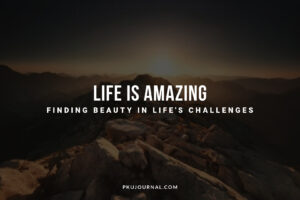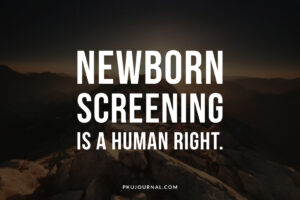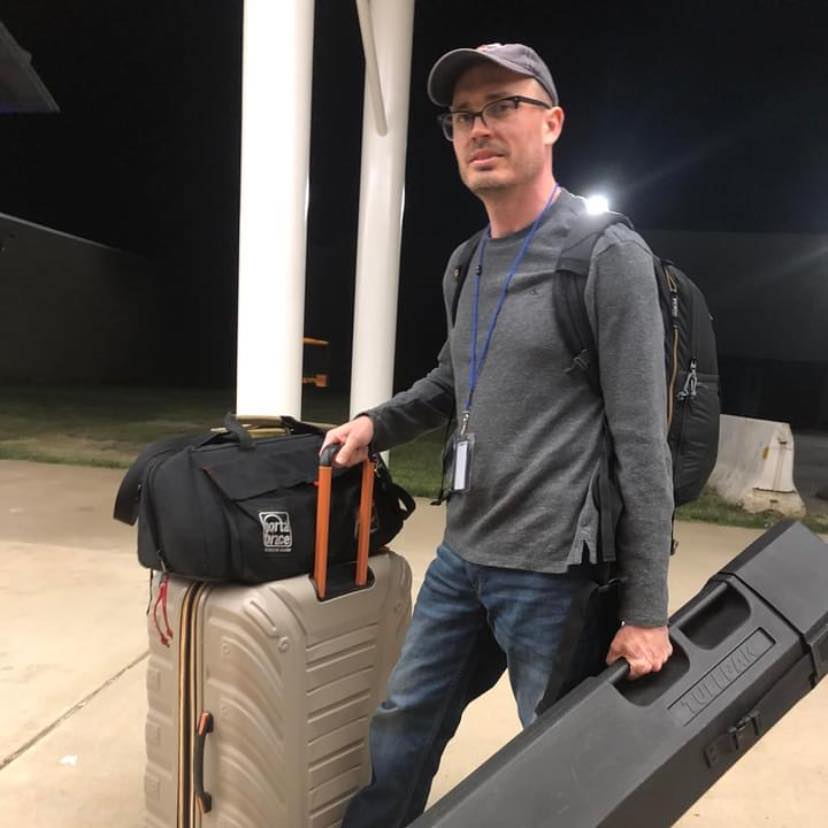As someone who has battled with a positive sense of self-worth, I share my personal journey in this article. Join me in accepting both the light and the dark to experience real hope and be fully alive. (This episode was inspired by an article I previously wrote on this blog called The Battle for Self-Worth: Navigating Shame and PKU).
Struggling with Self-Worth
I’ve been in the communications business for a long time. And the first rule of effective communication – know your audience. Well, that’s the tricky thing about a podcast like this… Who exactly is my audience?
The rare disease community includes so many perspectives. On one hand there are parents notified shortly after birth that their child has a rare disease. And then there are those who struggle to find a diagnosis for years. There are children who grow up with an invisible illness… outwardly they look like everyone else, but they have a rare disease that influences their daily lives in ways most people can’t possibly understand. There are those whose rare disease causes disability, and they learn to live in a world that doesn’t tolerate well those who are different. And then… there are children taken from us way too young. Thirty percent of children with a rare disease will not survive past age five.
And then, there are those like me… born with a rare disease with early diagnosis and an effective treatment. Of the 10,000 rare diseases, 95 percent do not have treatment (source: National Organization for Rare Disorders). Yes, we face challenges in the PKU community regarding access to that treatment. It’s an ongoing battle to get the medications I need. But treatment exists.
So how do I, with my perspective of the rare disease life that’s different than 95 percent of the rest of the community, share stories in a way that resonates with the entire community?
I’ve been open on this podcast already. I’ve shared my mental health story. I’ve talked about why I burned out for a long time and didn’t want to participate in PKU, newborn screening, and rare disease advocacy. So I’ll be transparent.
I struggled with the concept of this podcast for awhile. I lived in isolation from the community for a couple of years during COVID, and walked away from advocacy. When I came back to it, I didn’t know if anyone would listen anymore. I felt like someone who had abandoned his post. Previously, I felt like I had a mission in life. Advocacy brought me energy and life. But I didn’t know if anyone in the PKU community wanted to hear what I had to say anymore. I had lost my confidence. So when I thought about creating this podcast for the wider rare disease community, I didn’t feel as if my stories mattered. I fought a battle in my mind, struggling to believe that I could say anything encouraging to those whose experience with a rare disease is vastly different than mine.
I think that’s because, as someone who grew up with a rare disease, I’ve struggled with a positive sense of self-worth, and have battled shame my entire life.
So… let’s talk about self-worth.
The Journey of Mental Health
I keep a daily journal. It’s been a consistent part of my life since 2004. I worked on the morning show at the time, running live shots from 5-7am. Many times I would take the live truck and arrive to our location early so I could write in my journal. If I needed to be there by 4am then I’d show up at 3:30 so I’d have a little extra time to write. I’ve kept that practice up ever since, although I don’t have to be at work at 3:30 anymore, thankfully! These days, I’m up at 5 so I can have plenty of time to read, reflect on life, and write before the day gets away from me.
Since I shared my mental health story, first on my blog and then here on this podcast, I’ve been exploring issues like trauma, grief, anger, and acceptance. I’ve been learning to accept the present moment, no matter what it is. If I’m sad, I embrace it. I don’t run from it anymore. If I’m angry, I write through it. Often it helps me see how I’m misperceiving a situation. Confronting these emotions is the only way I can move forward in life.
And I’ve been reflecting on what I want to accomplish with my work in advocacy. Although I’ve been around PKU, newborn screening, and rare disease advocacy for a long time, I feel like I’m beginning something new. Because I’ve finally realized that what I’m the most interested in is how this rare disease lifestyle weighs on our mental health.
When I created my blog last year, I originally created a long list of ideas for articles. But the more I looked at it, the more I found something lacking. It’s like I was trying to create a map of territory that I hadn’t explored yet.
And that’s exactly what I want to do… explore. And the journey I’m on now in life is all about mental health.
The Destructive Power of Shame
As a general rule, our culture has long frowned on issues related to mental health. Tell someone you have a cold, and they’ll ask, “Did you see your doctor?” But tell someone you’re anxious or depressed, and they freeze. Why don’t we feel just as comfortable telling someone that we’re seeing a therapist as we are that we’re seeing our primary doctor?
Shame.
There is still this idea that if you need help with your mental health then there is something fundamentally wrong with you. Not that you have done something wrong. That leads to guilt. But that you are wrong. That is shame.
In sharing my mental health story I had to tear down a little bit of the mask I’ve worn for years as a public advocate. On one hand, I tried to take the same sense of professionalism that I’ve adopted as a storyteller and apply that to advocacy. When you produce videos, or speak publicly, or share your life on social media, you have to decide which parts of yourself you’re willing to share with the world, and which parts you keep for yourself. You have to compartmentalize, and that’s something I learned well while working in the field as a TV photojournalist… maybe I learned it too well.
So when I entered this new phase of advocacy, returning to the PKU community after a few years away, I realized that for the sake of my mental health I had to stop compartmentalizing, at least a little. Some of the walls I had built up over the years were detrimental to my mental health. So I opened up and shared my story.
I understand that many aren’t comfortable sharing their mental health story. It’s personal. It’s private. And some things are best left in your journal. Trust me, I understand. I did the same. I gave you a glimpse of what I went through, and what I’m going through. But I didn’t tell you everything. Some memories are too dark and painful, and I can’t talk about them.
It’s ironic that writing and talking about pain is itself a painful experience. We’re told that wounds heal with time. But some wounds don’t. You have to work them out. For me, that’s through writing.
You sit in a room, alone with your thoughts, and try to find a way to share them with the world. And with every word you write, you second-guess yourself.
“Is this too much? Is this too dark? Will it help anyone? What will they think of me now?”
It’s the feeling that your experience isn’t worth sharing because you aren’t worth sharing.
That’s the power of shame.
I’m ashamed to say that I deal with post-traumatic stress disorder. I feel ridiculous saying it, and it’s been over a decade since I received that diagnosis. People have certain preconceptions about PTSD. But as ashamed as I am to admit that part of my life, I’m equally intent on destroying preconceptions. So much pain is caused in this world because people are close-minded, and can’t possibly consider another person’s perspective. I think that’s something all of us in the rare disease community have encountered.
I’ve been reading about PTSD again, about how it messes with a person’s sense of identity. About how they often go from one thing to the next, never finishing one thing before they start another. Because they’re searching for an identity. Because they feel that who they are isn’t good enough.
I get that. I so get that.
But as I wrote in my journal, diving deeper into my past, and reaching a whole new level of self-awareness, I realized that I’ve felt that way… because of my rare disease… because of PKU.
Like there is something inherently wrong with me, because I’m so unlike the rest of the world.
You Are Not Wrong
This world doesn’t tolerate differences well. If your life experience doesn’t match up with the norm, then you aren’t just different. Your experience is considered invalid, and you are wrong.
Am I the only one who has encountered people like that? I mean, if you only had a few similar encounters, maybe it wouldn’t get to you. But I’ve had countless conversations, interactions, and “friendships” over the years that were based on mandatory acceptance of whatever the norm is considered to be. It gets exhausting.
After a while, it affects your sense of self-worth. You start to think, “Maybe they’re right. Maybe I am wrong.”
But I am not wrong. And neither are you.
This is something I’m struggling to understand. I don’t mean an intellectual level of understanding. In my mind, I say that I’m not wrong. But in my actions, I reveal that I’m not there yet.
I still care too much about what other people think of me. I get stuck in my head, on an endless loop, worrying that I’m not living up to other people’s expectations of me.
And I have a serious case of imposter syndrome. “One of these days everyone is going to realize that I don’t have it all together.”
But those are lies. All lies.
No one has the right to dictate my identity. I don’t need to seek validation from anyone, but rather commit myself to self-discovery. Chart my own path. Figure out who I am, and stop worrying about everyone else’s opinion of who I should be.
What other people expect of me doesn’t matter nearly as much as what I expect of myself. I can’t do everything, I can’t please everyone, and I can’t solve every problem. So why live as if it’s all up to me?
And imposter syndrome… That’s the biggest reason I’m writing my blog and producing this podcast. I’m forcing myself to open up, to share what I really think and feel, so that I stop believing the lie that I have to have it all together. I’m just someone on the journey of life, trying to figure out what that means, and fighting back against the voices in my head that tell me I’m not good enough.
What We Ultimately Want
What we think we want is people who understand our life experiences. But that’s asking too much.
I can’t expect someone outside of our community to truly understand what it’s like to live with a rare disease. With PKU, there’s the daily grind of following the treatment, the battle for insurance coverage, the social isolation. Every rare disease has its unique challenges.
And I can’t expect anyone else to truly understand my life experiences… the adrenaline rush of breaking news, what it was like in New Orleans post Hurricane Katrina, how you feel a bit of yourself chip away each day when you cover trauma.
I can’t expect others to understand those things. But I do want people in my life who care.
That’s what we ultimately want… people in our lives who care about us.
People who treat us not as if we are wrong, but celebrate our differences and allow us to contribute our unique perspective to their lives.
And I’ve realized over the years just how much we have to contribute to society, if others will only listen. We have stories of hope, stories of perseverance, stories of resilience. We all have overcome and are overcoming much pain. But many of us learn how to find joy in the midst of that pain. We see life differently, and we can help society see the beauty in difference.
I’ve spent months thinking about these issues and writing about them in my journal. And I’ve realized that this conversation, this exploration of life, mental health, and rare disease, is energizing me in a way that I haven’t experienced in years. It’s teaching me that if I can accept and embrace my differences then I can learn to overcome shame. It may take a long time. It may take the rest of my life. But I’m used to fighting a lifelong battle. And so are you.
What Unites Us
When I find myself discouraged, usually it’s shame screaming at me, suffocating my confidence. When I asked myself if I had anything to share of value with the rare disease community, I had to fight back against that shame, wake up, and realize… “I have a rare disease. Of course I have something to say.”
I can’t relate to the struggles of a parent who has had to fight to get a diagnosis for their child’s mystery illness. I can’t relate to the struggle someone faces when they don’t have a treatment for their rare disease.
But, I can relate to the social isolation, the mental anguish of knowing that you are different and that others can’t possibly understand your life. I understand that feeling that you are at war with your own body.
What unites us in the rare disease community is our common humanity. It’s not the specifics of our rare diseases. It’s our common quest to make sense of a life that is so uncommon to everyone else.
A few months ago, a new friend, Effie Parks, host of the podcast Once Upon a Gene, challenged me to write a poem… The topic – what opens your heart? This was my contribution. And I think it fits perfectly here. I called it… “Together”.
Raised alone
Now, together
Advocates, champions
In a battle we didn’t choose.
The world sees “rare”
We see friends.
Together
We dream
Together
We fight
Together
We live.
I said it a few weeks ago, and I’ll say it again… We need each other. We need to hope… together. I’ve tried living life on my own. There was a time when I knew no one else affected by a rare disease. And then, for a few years, I isolated myself from the PKU, newborn screening, and rare disease communities. With the PKU community, I’ve lived my life in public since I began my advocacy journey. I was afraid that if I shared my struggles, that I was having a hard time making sense of the trauma I witnessed, that I would be judged.
But that isolation only deepens shame, because you have no one in your life who can remind you… that there is nothing wrong with you. There is no reason to feel ashamed for being who you are.
You just have a rare disease. You’ve just lived life.
We are united in hope. United in our dreams of a better world. Even united in our pain.
And also united in our commitment… to never, never, never give up.











Leave a Reply